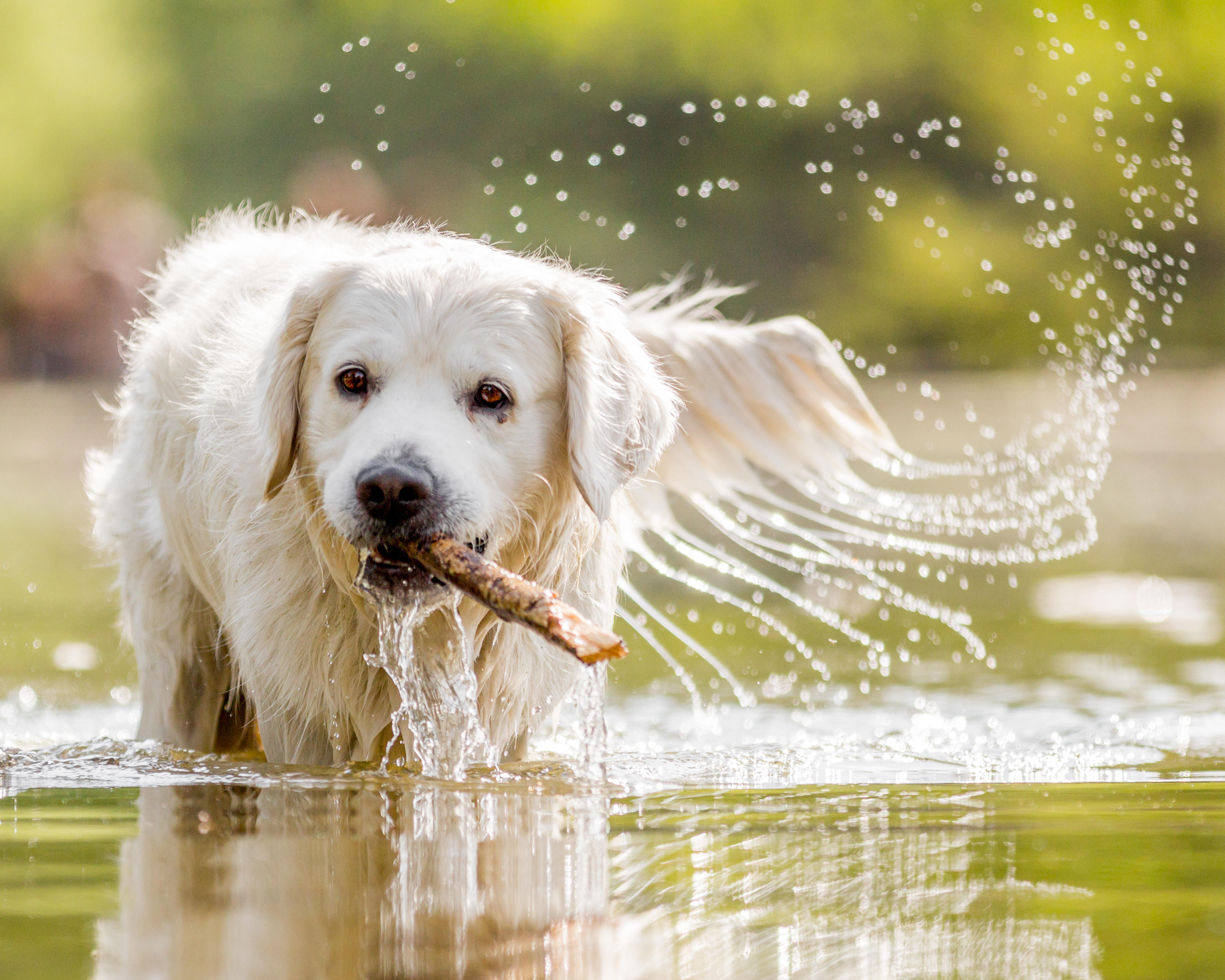Toxic algae in ponds across Britain can be fatal for dogs, warn vets
The British Veterinary Association is urging pet owners to beware harmful blue-green algae that can be fatal for dogs.


Exquisite houses, the beauty of Nature, and how to get the most from your life, straight to your inbox.
You are now subscribed
Your newsletter sign-up was successful
Vets have cautioned dog owners to keep their pets on the lead when near water that could be infested with toxic blue algae.
The warning comes after three dogs, who had played in an algae-contaminated pond in North Carolina, in the United States, died from poisoning within hours of leaving the water.
https://www.facebook.com/melissa.martin1974/posts/10219945909782726
Earlier this year, a German Cross Belgian Shepherd also died of suspected algae poisoning in Wales. The dog suffered acute kidney failure after drinking from a pond in Pentre Mawr Park, Abergele.
The algae blooms, explains the British Veterinary Association (BVA), ‘may appear as green or greenish-brown scum on the surface of water’. They can be fatal for humans, particularly small children, and cats, but dogs are especially likely to swallow them when drinking pond water or licking their fur after they have swum.
Even very small amounts can be highly toxic and if the poisoning is not treated immediately it can cause liver damage and ultimately lead to death. So it's vital to prevent pets swimming in or drinking water that may be affected by the blooms. And if your dog has been swimming outside, adds the BVA, ‘wash it thoroughly with clean water’.
'We know that some dogs enjoy nothing better than a paddle in a cool lake while on a walk during summer months, but my advice to pet owners would be to keep your dog on a lead during walks near water confirmed to have toxic algal blooms,’ says Daniella Dos Santos of the BVA.
Exquisite houses, the beauty of Nature, and how to get the most from your life, straight to your inbox.
‘While not all blue green algae are poisonous, it is impossible to tell the difference visually, so it is better to be safe than sorry.’
The harmful algae, which are actually aquatic bacteria, rather than relatives of the seaweed, thrive in warm wather and have been detected in several places across the UK, including Cornwall, Derbyshire, Hampshire, Leicestershire, Lincolnshire, and, in Scotland, Edinburgh and Elgin.
However, reports of new sightings can come in at any time so it’s important to check whether the Environment Agency or local councils have put up any warning signs near your local pond or lake.
If, despite your best efforts, you think your pet may have been exposed to blue algae,'rush it to your local vet without delay,’ says Ms Dos Santos. Symptoms to watch out for include vomiting, diarrhoea, drooling, disorientation, trouble breathing, seizures and blood in faeces.
‘There is currently no known antidote for the toxins, so prompt veterinary treatment is essential to tackle their effects and ensure a good chance of recovery.’

Great dogs from history
We take a look at some of the great dogs from history.
Carla must be the only Italian that finds the English weather more congenial than her native country’s sunshine. An antique herself, she became Country Life’s Arts & Antiques editor in 2023 having previously covered, as a freelance journalist, heritage, conservation, history and property stories, for which she won a couple of awards. Her musical taste has never evolved past Puccini and she spends most of her time immersed in any century before the 20th.
